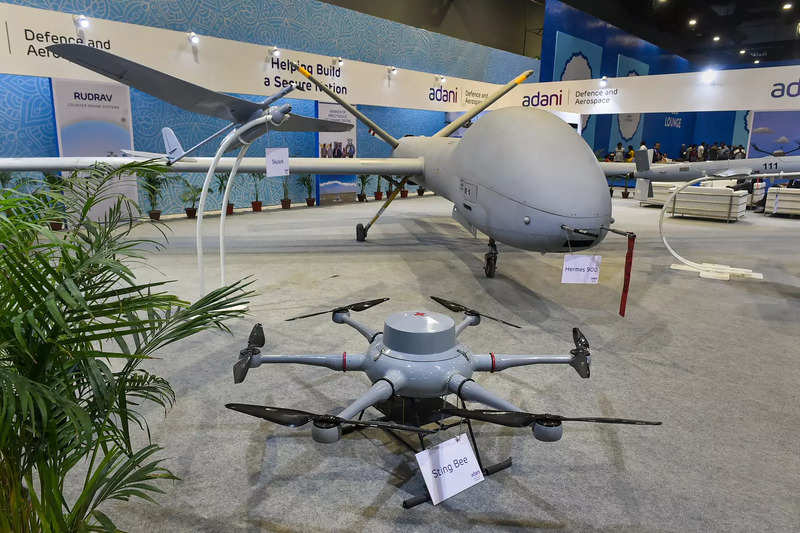India Drones: Experts say there are still concerns about the use of indigenous drones
Drones are mini pilotless aircraft operated by remote control and can be accessed through simple devices like a smartphone app.
These unmanned vehicles require far less effort, time, and energy, and can reach far and difficult terrains while being controlled by a single person remotely.
Popularity and adoption of drone technology is catching up across regions and sectors and India is no exception to it. Aviation Minister Jyotiraditya Scindia said last month that India will need approximately one lakh drone pilots in the coming years.
In order to showcase the potential of the indigenous drone industry, India recently organised its biggest drone festival in the national capital.
Bharat Drone Mahotsav, a two-day event held on May 27 and 28 in the capital saw over 1,600 delegates, including government officials, foreign diplomats, PSUs, private companies and drone startups etc. as participants.
The companies exhibited unmanned vehicles ready for fields such as defence, agriculture, survey mapping while also showcasing futuristic cutting edge projects that will entail the drones taking bigger roles such as carrying patients in emergencies to delivering goods and essentials at a mass level.
New-Delhi based drone maker Theta Enerlytics along with Vega Aviation Products showcased their endurance & hard body drones at the festival.
"These drones can be used for various purposes like agriculture, forest management services, town and city planning services, revenue and planning departments, police services, smart cities within the public sector and industries, power plants, mining companies, construction companies to name a few," said Karan Dhaul, Chairman and co-founder, Theta Enerlytics.
"Our drones are made with complete composite materials which enable a higher-flying time than any other drones in their class. Our Theta Falcon can fly up to 150 minutes in a single flight and can carry up to 1kilogramme of sensors and payloads," Dhaul told PTI.
He noted that 'Theta Falcon' is ideal for mapping applications, surveillance and border security. The drone takes off vertically like a helicopter and then transitions into horizontal flight like an airplane.
Another drone showcased at the festival, 'Hexacopter Theta Lotus', can carry a payload of up to 10 kg in ideal conditions and can be also used for stringing guidewires for transmission lines, ropeway bridges and cable cars.
"The Lotus can fly up to 70 minutes on a single charge," said Dhaul.
Many drones displayed at the festival have a specific and strong use case and will do well due to the burgeoning demand in the country, said Suhas Chandak, owner of Karnataka-based Vega Aviation Products.
Drone technology expert Dharmendra Singh concurred, saying a huge market and demand for drones is coming very fast in the country.
"Now, a lot of private players are coming in this area which will certainly reduce the cost of the drones as well as the services of the drones for different applications," Singh, professor at Department of Electronics & Communication Engineering, Indian Institute of Technology (IIT) Roorkee.
"So, it might be possible that in near future India may have very cost-effective services in various places like agriculture, delivery system, project monitoring, health sector etc," he added.
As India aims to become a global hub for drone technology by 2030, Singh said highly stable and precise drones with good coverage capability may play an instrumental role in public services.
The professor noted that India has enough infrastructure, good supply chain and excellent technical capacity for deploying drones, however, some concerns remain.
"Privacy, secret monitoring or spying and collisions of the drones are some of the concerns that can hinder their large-scale implementation," he added.
Chandak said the government is well aware of these issues and the zoning of the country into green, orange and red zones has addressed most fears and concerns, especially those around privacy.
"However, as an industry we must ensure failsafe against equipment failure or human error as a single accident can change the fate of any operator," said Chandak.
"As a deterrent to rogue drones, it would be helpful if the government makes easier the indigenous manufacture and deployment of anti drone systems and jammers to help protect infrastructure against antisocial elements," he added.
( Details and picture courtesy from Source, the content is auto-generated from RSS feed.)
Join our official telegram channel for free latest updates and follow us on Google News here.



